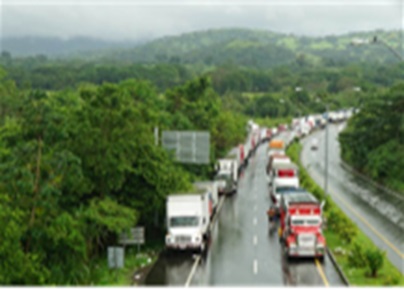Panama: Banana Industry Affected by Roadblocks and Strikes
2023-11-17

According to the country's leading business association, the roadblocks initiated almost one month ago in Panama against a controversial mining contract have caused losses of 1.7 billion dollars.
The protests erupted on October 20 when Congress approved a contract signed by the government allowing Canadian company First Quantum Minerals to operate the largest open-pit copper mine in Central America for 40 years.
Tons of damaged agricultural products, lines of trucks and cars stuck in blockades, an exodus of tourists, closed schools, and unrelenting marches have plagued the country for four weeks, in the largest protests since those more than three decades ago against the dictatorship of Manuel Noriega. "A significant proportion" of micro, small, and medium-sized companies "are starting to close their doors. We are compromising the nation's future," added the leader of Conep.
To quell the protest, Congress approved a moratorium on metallic mining on November 3 but left the future of the contract in the hands of the courts, satisfying environmentalists but not the construction union or teachers who maintain the blockades.
To make things worse, the Union of Workers of the Banana Industry, Agriculture and Related Companies (Sitraibana) approved an indefinite strike starting November 13 as a protest against Law 406, which allows the exploration and exploitation of the Cobre Panama mine for 20 years, extendable for the same period. In their resolution, they state that they will not work in farms and packing plants until the Law is repealed by the President of the Republic, Laurentino Cortizo.
The union threatened to conduct internal closures on the roads leading to Changuinola and those maintained by other groups in Changuinola.
They also asked the company Chiquita Panama LLC to maintain a dialogue with the national government for the repeal of the contract and ask not to see the workers strike against the company.
More than 200,000 bunches of bananas would be lost every week if the fruit was not processed in the different packing stations.









